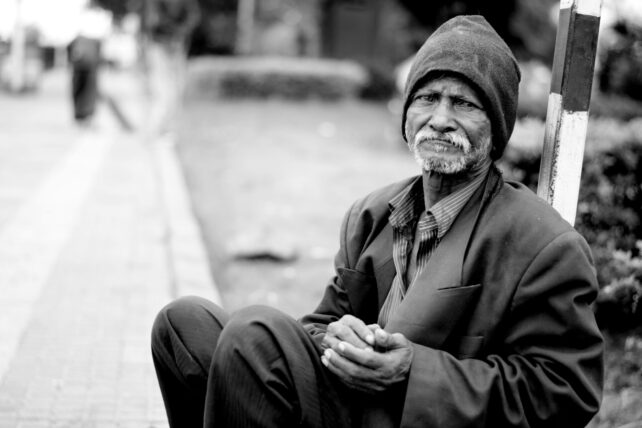
The ILO has warned that old age-related social protection coverage is deteriorating, leaving 34.5 per cent of people over 65 without any labour-related income or pension, a situation of vulnerability and economic insecurity that has been made worse by the COVID-19 crisis.
“The proportion of older people without labour income or pension increased from 31.9 per cent in 2019 to 34.6 per cent in 2020 and 34.5 per cent in 2021. This coverage gap is the highest in the entire series available since 2012,” according to a new technical note published by the ILO Regional Office for Latin America and the Caribbean.
At regional level, 46.8 per cent of those over 65 receive only a pension, 5.1 per cent receive labour income and pension, while 13.6 per cent report only labour income. In total, only 51.9 per cent receive a pension.
The “Overview of Social Protection in Latin America and the Caribbean”, analyzes social security trends in the region, in particular pension systems and the economic security of older people, which were put to the test during the social and economic crisis triggered by the pandemic.
“The pandemic made visible the importance of social protection systems, understood as the set of policies and programmes that guarantee comprehensive coverage against different social risks throughout the life cycle,” the study says. “Social protection is essential to promote social inclusion and cohesion and reduce poverty and social disparities, especially in the context of a crisis that hit the most vulnerable sectors hardest.”
“Given the lack of resources, such as savings or other private sources, and the decrease in the ability to generate labour income at advanced ages, it can lead to poverty in old age,” it adds.
The study notes that the performance of and challenges for social protection systems are related to a “triad of objectives” – coverage, adequacy and sustainability.
Coverage refers to the proportion of the population who have effective access to system benefits, adequacy denotes the amount of monetary or in-kind benefits, while sustainability relates to the relative capacity of an economy to meet the present and future costs of a social protection system.
The ILO note points out that while contributory pension systems ensure continuity of income, benefit levels depend on factors such as age, contribution years or pension savings, and these are often related to having formal sector working careers.
Coverage of contributory pensions fell 0.4 percentage points between 2019 and 2021, from 47.4 per cent to 47.0 per cent of the employed workforce. The fall in 2020 represents a seven-year setback and, despite some subsequent economic recovery, the levels of 2021 are similar to those of 2018.
Non-contributory pension programmes can close economic security gaps in old age by creating a guaranteed level of social protection. There are 19 non-contributory pension programmes in the region.
The ILO analysis found that, since the COVID-19 pandemic, it has become more difficult to achieve coverage, sufficiency and financial sustainability in pension systems, with greater uncertainty about economic growth, reduced fiscal space, and increased inflation and interest rates. In addition, longer-term, structural factors are playing a role, including high levels of informality (which puts pressure on pension system), disruption in work and production organization, ageing populations, rising dependency ratios, and increasing numbers of natural disasters.
The technical note lists 10 challenges facing social protection systems for the elderly in Latin America and the Caribbean:
- Recovering economic growth
- Increasing formal employment
- Increasing and consolidating fiscal space
- Consolidating contributory regimes to ensure sufficient, sustainable benefits
- Strengthening non-contributory schemes financed by general tax revenue
- Establishing adequate mechanisms for updating benefits to reflect national inflation levels
- Incorporating financing mechanisms to address issues faced by semi-contributory pension systems
- Achieving universal pension coverage through a mix of contributory, semi-contributory and non-contributory systems, taking into account gender gaps and income levels, so strengthening the governance and coordination of the overall system
- Ensuring health protection for the elderly population, regardless of income
- Clarifying the possible consequences and institutional requirements needed to manage policy transitions.

This is another damning report on the economic and social conditions in our region. Extreme poverty, dispossession, social disparities, hopelessness are the living realities of too many inhabitants.
What is even more troubling is the people in power are either completely clueless as to solutions or are totally indifferent to the suffering of these unfortunate citizens.
If we were to examine the lifestyle of all the rulers in the region, you are forced to draw one conclusion. They are all corrupt. For how could these rulers live in such mind-bogglingly affluence in countries that are so desperately impoverished?
These present rulers are endangering people’s lives for greed and personal profit. The survival of the people living in this region is in serious jeopardy.